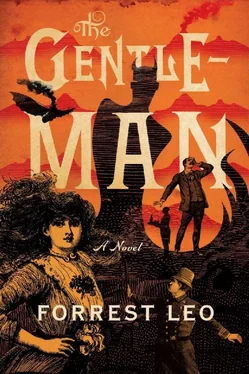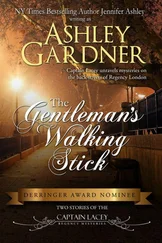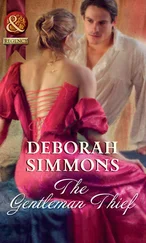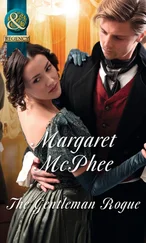‘Simmons,’ I ask, ‘how many syllables in “Devil”?’
‘I believe there are two, sir,’ says he, confirming my worst fears.
‘Can there be just one?’ For some unnameable reason I am feeling desperate about it. It is as though if ‘Devil’ could be considered a single syllable, my poem could move forward and then so too could my life.
Simmons thinks for a moment, and tries pronouncing it several different ways. ‘Dev-ill. Devl. Dev-il-ish. Dev-lish. Dev-il-ry. Dev-lry. Devl.’ He sighs, and at length says, ‘I’m not sure, sir.’
An idea occurs to me. It is an excellent one. I am all at once prodigiously excited. ‘If I write D-E-V apostrophe L, will people understand what I mean?’
He moves his head from side to side in equivocation. ‘What’s the context, sir?’
I answer him in iambs: ‘With-OUT the DEV’L we’d BOTH be OUT of-a JOB.’ I elide ‘of’ and ‘a’ to fit the verse, but I believe it sounds quite well.
‘I don’t know that it scans, sir.’

‘No, no, it does! That’s why I made it one syllable.’
Simmons frowns, and says, ‘But you just said “Devil.”’
‘No,’ say I, a little annoyed, ‘I said “Dev’l.”’
‘Forgive me, sir, I heard “Devil.”’
‘Well damn it, it doesn’t matter what you heard: it’ll be written “Dev’l.”’
‘I thought you were going to make it one syllable.’
‘THAT WAS ONE SYLLABLE.’
‘Oh,’ he says dubiously, ‘I see.’
It isn’t much of a concession, but I don’t need much of one right now. Even a little one will do. I take it as tacit encouragement and feel a surge of elation. I haven’t been excited about a project in months, and I plunge forward in explanation.
‘I’ve decided to write a defence of the Devil,’ I tell him. ‘It’s a dialogue. A man is walking down a road and sees a priest—’
‘Who has tripped over a cobblestone and is cursing the Devil and the man defends the Devil?’
I hate when Simmons finishes my sentences. It makes me feel unoriginal. But I acknowledge that, yes, such is in fact what I was going to say. I ask him what he thinks.
He surprises me by replying, ‘I think it’s very good, sir,’ and then surprises me not at all by going on: ‘I’ve heard that when one runs out of inspiration, it can be very helpful to whore out one’s own experiences.’
When my parents died, which happened in a manner at once absurd and poetic, Simmons took over the rearing of Lizzie and me. It was not strictly speaking usual, but then nothing in our family has ever been so. We are eccentrics. Simmons is, you will have already apprehended, not a butler in the usual sense. He frequently does unbutlerly tasks, but when I point it out to him he simply sniffs and says that he prefers to know the work is sound. I admire him greatly for it. (I am at heart a revolutionary.) I mention all this only to make clear that though I am furious with Simmons, the thought of dismissing him is quite inconceivable. I do however consider striking him — but refrain, as I have never in my life hit a man, and it seems a foolish thing to begin upon my septuagenarian butler.
Instead, I mumble, ‘I wish you hadn’t said that, Simmons.’
‘Yes, sir.’ There is no contrition in his voice. I believe he is cross with me, but I am not certain why. I am behaving in quite the manner I always do. His attitude, however, seems quite changed. In fact, as I reflect upon it, he has seemed rather off since my wedding. I wonder if perhaps he finds Vivien as upsetting as I do. It is not a thought which has occurred to me before. I realise for the first time that in a sense when I married her he did also — not of course in the physical sense, but in the sense that she is now a constant presence in his life and has complete authority to make his existence miserable — and he was not even consulted upon it.*
‘By the bye, sir,’ he says, ‘your wife is asking for you.’
That is how I know Simmons is displeased with me: he is acting as her messenger. I refuse to submit. ‘Tell her I’m working.’
‘Very good, sir.’
Simmons turns on his heel and begins to leave. I know that he is sulking and I feel slightly ashamed of myself. I do not like it when Simmons and I are at odds. It seems elitist and wrong. I search for something to say which will allow us to part on better terms.
‘Are there many people out there?’ It is not all that could be desired, but as an overture of peace it will serve.
‘There are, sir,’ he replies, and I can tell that he is not so angry at me as he may have been a moment ago. There is forgiveness in his voice and manner, even if no one but myself could discern it. I have that gift — faces and demeanours are to me an open book. I know of no man more adept at reading other people. ‘We’re nearly out of champagne,’ he adds.
I sigh. He is waiting for me to say something, and I know what it is. It is what he would call my duty. At length, I say as cheerfully as I am able, ‘I suppose I should go out and make sure no one’s stealing anything.’ It is the last thing in the world that I would like to do, but there comes a time in a man’s life when he must stare a bullet in the eye, and if this is mine then I shall not shrink from it.
I expect Simmons to be mollified by my courage, but he is not. He says, ‘Do you have a mask, sir?’
I am taken aback. ‘Excuse me?’
‘No one is allowed at the party without a mask. It’s strictly enforced.’
‘It’s my own home,’ I cry with indignation. Does he want me to do my duty or not?
‘All the same, sir.’
He is being contrary on purpose, and it annoys me greatly. I have striven to make myself agreeable even in the depths of my foulest of moods, and all he can tell me is that I cannot leave my own study without a mask! ‘Lend me yours,’ I say coolly.
‘I’m afraid I can’t, sir. It would baffle the guests.’
‘Well damn it, then go and find me one, Simmons!’
‘Very good, sir,’ he says, and begins to leave.
I am determined to show him that I am not cowed by his belligerence, and so I continue composing immediately. I say, ‘With-OUT the DEV’L we’d BOTH—’ and then break off. I cannot maintain the act in the face of such wretched poetry. ‘It’s not any good, is it?’ I ask his back. There is a part of me which wonders if perhaps it is rather good, and I am simply unaccustomed to good poetry and can no longer recognise it. It is a small part of me, but it is there all the same.
‘Not very, sir,’ he says, sounding pleased. Then he opens the door and plunges out into the swirl of silk and satin and noise.
I sink my head down upon my desk. I reflect that if I had killed myself three hours ago, I should not have had to speak with Lizzie or fight with Simmons or confront my own inferior poetic efforts. If I could go back in time I would surely hurl myself into the Thames without consulting anyone, Froggy children be damned.*
There was a time, and it was not so long ago, when my poetry was respected very widely.* I commanded a large readership, and from book to book I did not let down the expectations of press or public. Admittedly, my work was not Keats. Nor, I suppose, was it Byron, Shelley, Wordsworth, Coleridge, Milton, Blake, or Shakespeare. And it was certainly not Tennyson. But it was not bad. I was young, agreeable, unpretentious, and wrote prettily and wittily, even if I had not I suppose altogether overmuch to say. I amused myself and I amused my readers, and what else can a man wish for? I do not care for poets who spin solemn stanzas of lost love and theology. Ours is not a solemn age, on the whole, and so it puzzles me that our poetry should by and large be characterised by its solemnity and lack of humour.
Читать дальше













